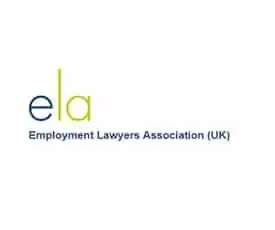Can An Employee Retract A Resignation?
We’re a team of calm, confident and cost-conscious employment lawyers. Call us today on 01793 296581
Can An Employee Retract A Resignation?
In most cases, no. When an employee gives notice to an employer that they wish to resign, it cannot be withdrawn unless the employer consents to doing so.
The employment contract between the two parties should include a notice clause that states clearly the process for terminating employment, including how much notice is to be given.

Can An Employer Refuse A Resignation From An Employee?
Generally, an employer does not have the legal right to refuse a resignation, and once the resignation has been submitted, it’s considered effective, unless the employee retracts it before the employer formally accepts it.
Any employer of multiple people has to eventually deal with employees that submit resignations. In many cases, these resignations are crystal clear in terms of the date they will take effect and why they are happening.
However, many resignations do not prove so clear or concrete, and instead, are what are known as ‘ambiguous resignations’.
It’s important for employers to carefully consider every circumstance involved when handling resignations, as some resignations may or may not be able to be withdrawn, and employers need to eventually decide whether or not they even accept resignations in the first place.
A resignation can also lead to a constructive dismissal.
Can An Employee Change Their Mind?
An employee can typically change their mind after giving notice of their intended resignation. However, the ability to retract a resignation might depend on specific circumstances and timing.
If the employer has not yet formally accepted the resignation, it’s generally easier for the employee to retract it. The employee should communicate their change of mind as quickly as possible, ideally in writing, to make their intentions clear.
If the employer has already accepted the resignation, it might be more challenging to retract it, and the decision to allow a retraction may be at the employer’s discretion. In some cases, the terms of the employment contract or company policies may have specific provisions regarding the retraction of a resignation, so it’s advisable to consult those documents or seek legal or HR advice.
Again, employment law can vary between jurisdictions, so it would be prudent to consult with an employment law specialist or your company’s HR department if you find yourself in this situation.
In What Circumstances Can A Resignation Be Revoked?
A resignation can typically be revoked or retracted under certain circumstances, but it may depend on various factors, including the timing, the employer’s policies, and the specific terms of the employment contract. Here are some general circumstances in which a resignation might be revoked:
- Before Acceptance by the Employer: If the employer has not yet formally accepted the resignation, the employee may be able to retract it. It is generally easier to revoke a resignation at this stage.
- Mutual Agreement: If both the employer and the employee agree, a resignation may be retracted even after it has been accepted. This could happen if both parties discuss the situation and decide that continuing the employment relationship is in their best interests.
- Company Policy: Some companies may have specific policies that allow for the retraction of a resignation within a certain time frame or under particular conditions. It would be advisable to consult the company’s handbook or HR department to understand these policies.
- Legal Considerations: In some cases, legal considerations may allow or necessitate the revocation of a resignation. For instance, if the resignation was made under duress, coercion, or without proper understanding, it might be considered invalid.
- Cooling-Off Period: Some organisations might offer a “cooling-off” period, especially if the resignation was made in the heat of the moment or under emotional stress. This provides the employee an opportunity to reconsider their decision.
- Contractual Terms: The specific terms of the employment contract may also outline conditions under which a resignation can be revoked. It’s wise to review the contract or consult with a legal professional to understand these terms.
It’s important to note that if an employee wishes to revoke a resignation, they should communicate their intention clearly and promptly, ideally in writing. The employer’s acceptance of the retraction may be at their discretion, especially if the resignation has already been formally accepted.
Laws and regulations may vary by jurisdiction, and specific company policies can also play a significant role, so consulting with HR or an employment law specialist is often the best course of action to understand the possibilities and limitations in a given situation.
What Are Ambiguous Resignations?
Typically when an employee provides their employer notice, the statement they make is clear and unambiguous in their intention to terminate their employment. In such cases, employers are entitled to rely upon this statement.
On the other hand, if the resignation statement or letter uses ambiguous technology, especially when said resignation gets delivered in a heated moment, then the standing isn’t as straightforward. If there’s any ambiguity in terms of the actions taken or words used, then the crucial question is how any reasonable person might interpret the events if they have full knowledge of the situation.
A recent case highlighted the complexities that employers face in such situations. A hospital worker was not satisfied with their current role and had applied for employment in a different department that was in the same hospital. The worker got a conditional job offer, and so she handed a resignation letter to her manager asking the manager to accept a month’s notice from the stated date in the letter.
Unfortunately for the employee, the conditional offer was withdrawn. As such, she tried to retract her notice. The hospital refused to do so, instead of replying with a formal notification that confirmed her final day of employment, leaving her out of work.
The formal ruling was that this notice happened to be an ambiguous resignation since it was based on the worker leaving one department for another instead of leaving any employment at all behind. This employee wound up having a successful unfair dismissal claim.
Employers can accept resignations that are given verbally, however, in order to avoid trouble after the fact, both the employee and employer need to be crystal clear that the employer genuinely intends to end their employment. Getting a resignation confirmed in writing goes a long way.
It should be noted that if an employee walks out, is involved in a heated exchange, or has an argument, then an employer would be wise to wait for a cooling-off period before accepting a resignation.
This can be just a few days rather than weeks, but it varies on an individual basis by case. Employers need to make sure that resignations are unambiguous even if they start off as ambiguous, in order to protect themselves from claims after the fact. It also prevents the embarrassment and expense of possibly hiring a replacement only to have the resigning employee wind up staying on board.
For any information relating to our services please give us a call and we will be very happy to help.
What Can We Help With?
- Settlement and compromise agreements
- Unfair dismissal advice
- Employment tribunal advice
- Discrimination claims
- Redundancy advice
- Breach of contract
- Advice on maternity and paternity leave
- Book A Free Consultation
- Understand Your Situation
- Know Where You Stand
Our 3 Step Process
Book A Free Consultation
This complimentary consultation allows our employment solicitors to understand more about your specific situation so we can provide you with the best advice possible.
We’ll lay out your options and will advise you upfront of any costs involved.
Our 3 Step Process
Understand Your Situation
Understanding your unique situation will help us to understand how we can help you move forward with more clarity.
Although everyone’s situation is unique, we’ve most likely dealt with similar scenarios before.
Our 3 Step Process
Know Where You Stand
Whether that’s pursuing unfair dismissal, negotiating a larger settlement agreement, starting a claim for discrimination or simply having peace of mind.
We’ll help you feel clearer and more settled.

0 / 127
5 star reviews

0 / 50
5 star reviews
Yell.com

0 / 231
5 star reviews
ReviewSolicitors
Client Feedback
We have formed many long-lasting relationships by listening to feedback and understanding our clients’ needs. Our employment law advice provides exceptional care and tailored support.
“DPH Legal has provided expert advice on all aspects of employment law. When advising us on any matters there was always a choice of action that could be taken and clear instruction on risks and options open to the company.”
Tracey Rees
“Outstanding I fully recommend DPH Legal to anyone who needs legal representation or advice for even the most contentious and upsetting disputes. David Harris and the whole team are second to none, and they give fact-based advice to get the best outcomes for the client.”
SilverPot63
“From beginning to end they were a pleasure to deal with. They were extremely efficient and the lawyers at DPH Legal were without doubt experts in their field. They conduct themselves with impeccable professionalism and remain in constant communication throughout.”
Behrooz Vahedifar
Award Winning Service
Our award-winning legal services are recognised for excellence, professionalism, and client success. We provide tailored strategies with a focus on precision, integrity, and results.
Contact a Lawyer Today
Davidson House,
Forbury Square,
Reading, Berkshire,
RG1 3EU
0118 914 5622
info@dphlegal.com









